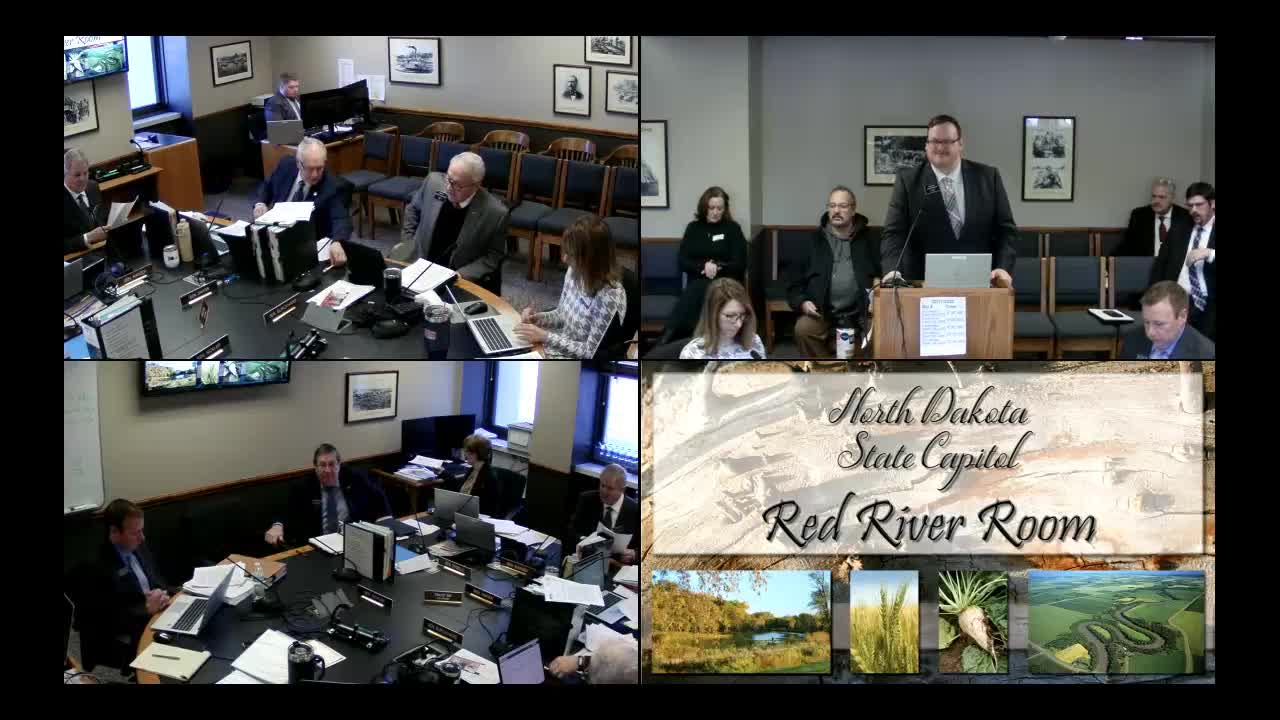Committee Reviews DOT Budget: Flexible Transportation Fund, Highway 85 Gap, EIS Work and Minor Capital Requests Discussed
Get AI-powered insights, summaries, and transcripts
Subscribe
Summary
The Senate Government Operations Division reviewed the Department of Transportation’s amendment packet, discussing a proposed $100 million state allocation for a federally ineligible six‑mile segment of Highway 85, environmental work on long‑term corridors and several smaller capital requests for DOT facilities.
The Government Operations Division reviewed a comprehensive Department of Transportation amendment packet and discussed funding mechanics, program priorities and several discrete requests that members asked staff to refine before full committee consideration.
Ron Henke, DOT director, explained that one stretch of Highway 85 (roughly six miles through the Badlands) failed to clear federal benefit‑cost criteria and therefore did not qualify for a large federal grant; the department and the committee discussed adding $100,000,000 from state sources in the amendment packet to finance that segment. Henke confirmed the federally awarded portion of the corridor (about $55,000,000) covers the remainder of a larger project; the $100,000,000 would enable construction of the isolated six‑mile segment the feds did not fund.
Committee members debated whether to make the DOT appropriation a continuing appropriation (so the flexible transportation fund grows with motor vehicle excise tax and legacy earnings) or to keep annual appropriations subject to later legislative review. Some members favored the continuing appropriation to create a steady funding stream and to let DOT move projects when funds exceed projections; others expressed caution and asked to defer a final decision until additional committee members returned.
Lawmakers also discussed environmental work to advance long‑range corridor planning. Senator Bechtel proposed language directing DOT to continue investigations on Highway 85 south to the South Dakota border and to resume environmental impact statements (EIS) on Highway 2 segments. Henke estimated modern corridor EIS work could cost millions — in some cases $3–$10 million depending on complexity and length — and could take two to three years for completion.
Members approved a technical amendment request from DOT to broaden allowable small capital purchases (removing the words “local and maintenance” from a line so district offices and headquarters could buy basic appliances, e.g., refrigerators and microwaves for staff spaces). DOT said the modest purchases support staff working irregular hours and are currently handled via wellness committees and ad‑hoc donations.
Committee members discussed several other items in the amendment packet and directed staff to finalize language for the full committee. Leaders signaled the need for additional conversations about the continuing‑appropriation choice and the list of prioritized projects, and to confirm matching and sequencing for federal grants already awarded.
